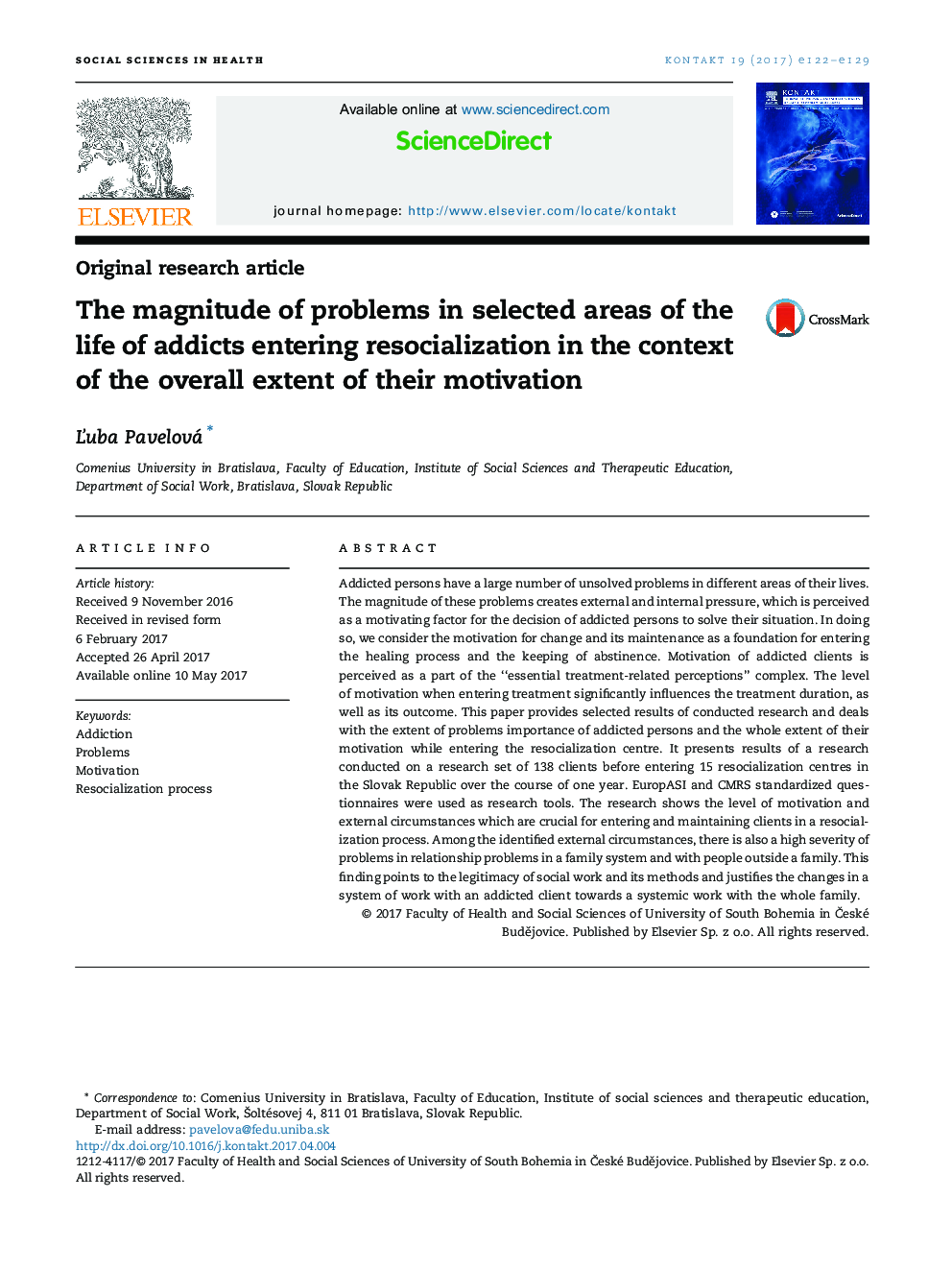| Article ID | Journal | Published Year | Pages | File Type |
|---|---|---|---|---|
| 7521565 | Kontakt | 2017 | 8 Pages |
Abstract
Addicted persons have a large number of unsolved problems in different areas of their lives. The magnitude of these problems creates external and internal pressure, which is perceived as a motivating factor for the decision of addicted persons to solve their situation. In doing so, we consider the motivation for change and its maintenance as a foundation for entering the healing process and the keeping of abstinence. Motivation of addicted clients is perceived as a part of the “essential treatment-related perceptions” complex. The level of motivation when entering treatment significantly influences the treatment duration, as well as its outcome. This paper provides selected results of conducted research and deals with the extent of problems importance of addicted persons and the whole extent of their motivation while entering the resocialization centre. It presents results of a research conducted on a research set of 138 clients before entering 15 resocialization centres in the Slovak Republic over the course of one year. EuropASI and CMRS standardized questionnaires were used as research tools. The research shows the level of motivation and external circumstances which are crucial for entering and maintaining clients in a resocialization process. Among the identified external circumstances, there is also a high severity of problems in relationship problems in a family system and with people outside a family. This finding points to the legitimacy of social work and its methods and justifies the changes in a system of work with an addicted client towards a systemic work with the whole family.
Keywords
Related Topics
Health Sciences
Medicine and Dentistry
Public Health and Health Policy
Authors
Ľuba Pavelová,
